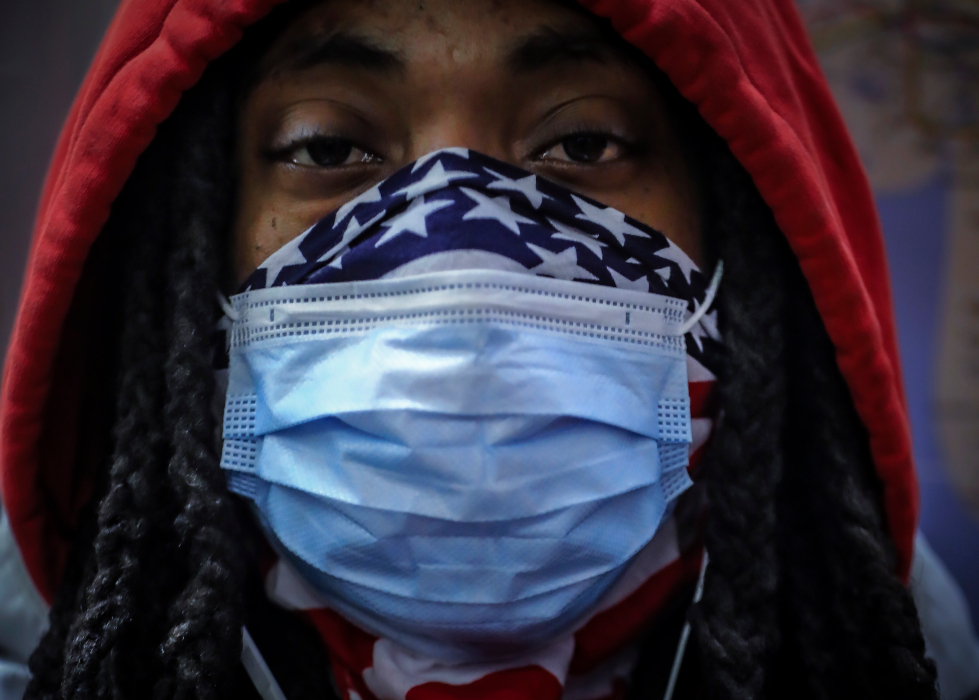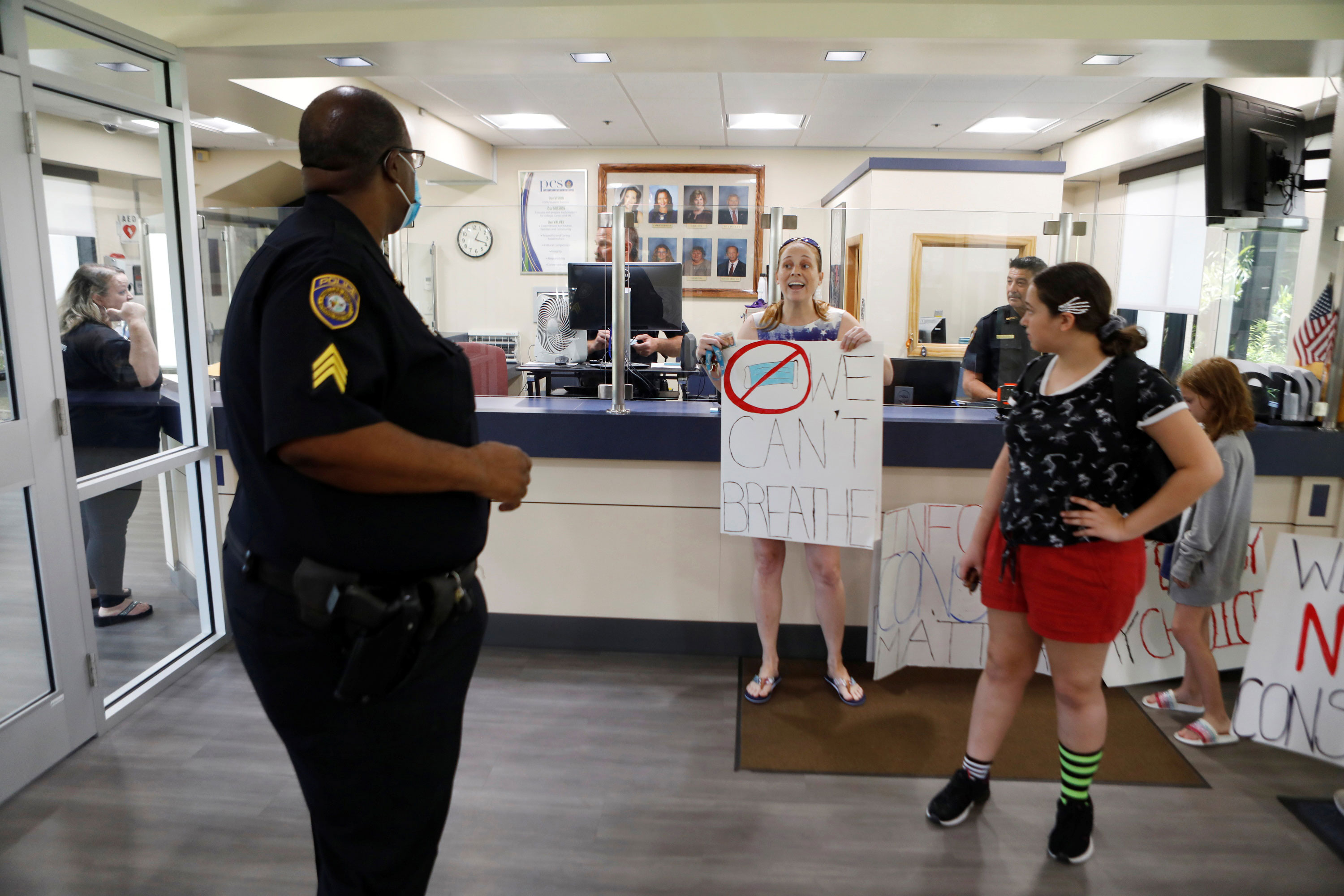Historical Context and Legal Background

The debate surrounding mask mandates in Nassau County, New York, has been a contentious one, marked by legal challenges and shifting public opinion. To understand the current landscape, it’s essential to examine the historical context and legal basis for these mandates.
The evolution of mask policies in Nassau County reflects the broader national and state response to the COVID-19 pandemic. Initially, mask-wearing was largely voluntary, with public health officials recommending it as a measure to curb the spread of the virus. However, as the pandemic intensified and the scientific understanding of transmission grew, mandatory mask policies became increasingly prevalent.
Timeline of Mask Policies in Nassau County
The timeline below provides a chronological overview of mask mandates in Nassau County, highlighting key events and legal challenges:
- March 2020: Nassau County Executive Laura Curran issues an executive order urging residents to wear masks in public settings. This order was largely advisory, lacking enforcement mechanisms.
- April 2020: New York Governor Andrew Cuomo issues a statewide mask mandate, requiring face coverings in public spaces, including businesses and public transportation. Nassau County falls under this mandate.
- May 2020: Nassau County implements its own mask mandate, mirroring the state’s guidelines and imposing fines for non-compliance.
- June 2020: The Nassau County Legislature approves a resolution supporting the county’s mask mandate, solidifying its legal basis.
- August 2020: A lawsuit challenging the county’s mask mandate is filed in federal court, arguing that it violates constitutional rights. The lawsuit is ultimately dismissed, upholding the mandate.
- September 2020: The county updates its mask mandate, clarifying exemptions for certain individuals and emphasizing the importance of mask-wearing in schools.
- January 2021: The state’s mask mandate is expanded to include schools, prompting further debate and legal challenges.
- May 2021: The state lifts its mask mandate for vaccinated individuals, but Nassau County continues to require masks in certain indoor settings, citing concerns about the Delta variant.
- August 2021: A new lawsuit is filed challenging the county’s continued mask mandate, arguing that it is no longer necessary given the high vaccination rates and declining COVID-19 cases.
- October 2021: Nassau County lifts its mask mandate for vaccinated individuals, aligning with state guidelines.
- December 2021: The county reinstates its mask mandate for all individuals, regardless of vaccination status, citing the emergence of the Omicron variant.
- February 2022: The county modifies its mask mandate, requiring masks only in certain high-risk settings, such as healthcare facilities and public transportation.
- March 2022: The county lifts its remaining mask mandate, aligning with the state’s decision to remove all mask requirements.
Legal Basis for Mask Mandates in New York State
The legal authority for mask mandates in New York State stems from the state’s Public Health Law, which grants the Governor and local health officials broad powers to implement measures necessary to protect public health.
“The governor may, by executive order, or the commissioner of health may, by regulation, require any person to submit to a medical examination or treatment or to take such preventive measures as may be necessary to prevent the spread of a disease or to protect the public health.”
This law has been used to justify various public health measures, including mask mandates, during the COVID-19 pandemic. The state’s authority to impose mask mandates is further supported by the “police power” doctrine, which allows governments to regulate activities that pose a threat to public safety and welfare.
The application of these legal principles to Nassau County is straightforward. As a county within New York State, Nassau County is subject to the state’s public health laws and regulations. This means that the county government is empowered to enforce state-mandated mask policies, as well as implement its own regulations within the bounds of state law.
Public Health Perspectives
The proposed ban on masks in Nassau County raises significant concerns about the potential impact on public health, particularly in light of the ongoing COVID-19 pandemic. While individual liberty is a cornerstone of American society, it must be balanced against the collective responsibility to protect public health.
Scientific Evidence for Mask Effectiveness, Nassau county ban masks
A substantial body of scientific evidence supports the effectiveness of masks in preventing the spread of respiratory illnesses, including COVID-19. Masks act as a physical barrier, reducing the transmission of respiratory droplets containing viruses.
- Numerous studies have demonstrated that mask-wearing significantly reduces the risk of COVID-19 transmission, both for the wearer and those around them.
- The Centers for Disease Control and Prevention (CDC) and the World Health Organization (WHO) strongly recommend mask-wearing in public settings, particularly indoors, to mitigate the spread of respiratory illnesses.
- Studies have shown that even simple cloth masks can effectively reduce the transmission of respiratory droplets, while more specialized masks, such as N95 respirators, offer even greater protection.
Impact of a Mask Ban on Public Health
A mask ban in Nassau County could have a detrimental impact on public health, particularly in light of the ongoing COVID-19 pandemic.
- COVID-19 transmission rates could increase significantly, leading to a surge in cases, hospitalizations, and potentially deaths.
- The ban could disproportionately affect vulnerable populations, such as the elderly, individuals with underlying health conditions, and those who are unvaccinated.
- The ban could strain the healthcare system, leading to longer wait times, delayed care, and potential shortages of resources.
Ethical Considerations
The ethical considerations surrounding mask mandates are complex and involve balancing individual liberty with the collective responsibility to protect public health.
- While individuals have the right to make their own choices, these choices should not infringe upon the rights and safety of others.
- The principle of “harm reduction” suggests that public health measures, such as mask mandates, are ethically justified when they demonstrably reduce the risk of harm to others.
- The ethical framework of “social solidarity” emphasizes the importance of individual actions that contribute to the well-being of the community as a whole.
Socioeconomic and Political Implications: Nassau County Ban Masks

The debate surrounding a mask ban in Nassau County extends beyond public health considerations and delves into complex socioeconomic and political dimensions. The potential ramifications of such a policy on businesses, healthcare professionals, and the community at large, along with the intricate interplay of political ideologies and public sentiment, necessitate a thorough examination.
Economic Implications of a Mask Ban
A mask ban in Nassau County could have significant economic consequences, impacting both businesses and tourism. While some argue that a ban would boost business activity by removing a perceived barrier to customer interaction, others contend that it could deter customers concerned about their health and safety. The potential impact on tourism is particularly noteworthy, as Nassau County relies heavily on tourism revenue. A mask ban could discourage visitors, particularly those seeking a safe and healthy environment, leading to a decline in tourism spending and job losses.
The potential economic impact of a mask ban on Nassau County is a complex issue with no easy answers.
Political Climate and Public Opinion
The political climate surrounding mask mandates in Nassau County is highly polarized, reflecting national trends. Proponents of a mask ban often cite individual liberty and personal choice as their primary motivations, while opponents emphasize the importance of public health and community safety. Public opinion is similarly divided, with some residents strongly advocating for a ban while others remain staunchly opposed. This division has led to heated debates and protests, further polarizing the political landscape.
The political climate surrounding mask mandates in Nassau County is highly charged, with strong opinions on both sides of the issue.
Nassau county ban masks – The Nassau County mask ban, a contentious issue that sparked debate and controversy, has been a focal point in local politics. The leadership of Mayor Tiffany Henyard, whose legacy is intertwined with this issue , has been under scrutiny as the community navigates the complexities of public health and individual liberties.
The ban’s impact on Nassau County’s social and economic landscape remains a subject of ongoing analysis and discussion.
While Nassau County’s mask ban has sparked debate, it’s important to remember that individual choices can impact public health. Similarly, the decision to refresh a beloved piece of furniture, such as a Poäng chair, by creating a custom cover using a poang chair replacement cover pattern , reflects a desire for personalization and comfort.
Just as a new cover can revitalize a chair, community engagement and responsible actions can revitalize public health initiatives, fostering a shared sense of well-being.

